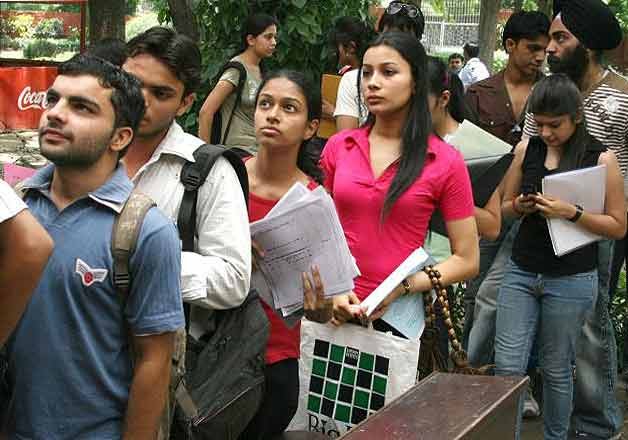New Delhi: Delhi High Court today dismissed a batch of pleas by students of various state boards challenging Delhi University's cut-off calculation and seeking a uniform admission process, saying they were aware of the admission guidelines beforehand and had still taken a chance.
“The petitioners, thus, at the time of applying for admission, with the knowledge of the cutoff marks of previous year and of the clause aforesaid (on cut-off calculations), are deemed to have merely taken a chance while applying for admission to the University and its affiliate colleges,” the court said.
Justice Rajiv Sahai Endlaw “prima facie” held that there was “no arbitrariness” in the decision of the University “to provide for levy of disadvantage on the results of an examination, the component of theory wherein is less than 70 per cent”.
The court, however, felt the varsity should reconsider this clause in the admission criteria as it felt there was “some merit in the contention that the formula adopted by the University to levy a disadvantage is arbitrary”.
“Prima facie merit is found in the contention that even if the marks scored in internal assessment/continuous evaluation/ practical examination are to be disregarded, levy of disadvantage of 10 per cent of the total marks works injustice to the students whose qualifying examination has less than 70 per cent component of theory,” the court said.
“It prima facie appears, that such students should be graded on the basis of the marks scored by them in theory examination even if component thereof is less than 70 per cent but which theory examination the University itself treats on par with the theory examination of CBSE,” it said.
The court refused to provide any relief to those students, from state boards, who were mistakenly admitted by the colleges and whose admissions have been cancelled, saying “no special class of such students can be carved out, by allowing their admissions to stand in spite of otherwise dismissing the petitions”.
It said that those students who were wrongfully admitted and whose admissions on detection of the wrong were cancelled, “are themselves contributory to the commission of wrong”.
“They, as aforesaid, were aware or are deemed to be aware of the clause aforesaid (on cut-offs) and ought not to have approached the colleges for admission claiming to have marks above the cut,” it said.
The court noted that it is such “non-enforcement of laws, rules and regulations and frequent deviations therefrom” which has led to the country “having a weak governance and rule of law”.
“Non-enforcement of laws, rules and regulations and frequent deviations therefrom, in my view, has led to the country having a weak governance and rule of law and which appears to be the root cause of all the maladies facing the country,” the judge said.
The court said in its 44-page verdict that if a student, who in spite of being not entitled to admission is allowed to retain the admission wrongly given to him and to which wrong he himself also is a contributory, he “will grow into a citizen with this understanding only of the country and its administration and in whatever vocation he/she chooses, continue to be guided by this philosophy only that whatever is achieved, even if by hook or by crook, cannot be taken back from him”.
“It is such frequent application of considerations of mistake and the consequent injury on account thereof for allowing deviations from laws, rules and regulations which has led a large section of the population to repeatedly and intentionally commit mistakes, knowing that the action mistakenly done would attain permanence. The same can no longer be permitted,” the court said, while vacating the interim orders passed by it.
The court had earlier granted an interim relief to six students whose admission in Miranda House was cancelled after they were issued identity cards by the college, by asking the institute to keep the six seats vacant.

